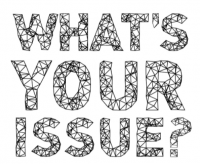Issues
Issues
Issues
We define community broadly and engage in communities of many kinds. Pieces are arranged topically and the list of issue topics is continually expanding.

Posted in: Children, Youth and Families, Mental Health, Poverty and Socioeconomic StatusCommunity violence impacts all youth, not just youth who are directly exposed to the violence.
Read MorePosted in: Education, Marginalized Groups, Poverty and Socioeconomic StatusPublished in: American Journal of Community PsychologyFinancial stress can have a significant impact on well-being. Colleges and universities can create opportunities for students to build empathy around social class.
Read MorePosted in: Children, Youth and Families, Marginalized Groups | Tags: ResearchPublished in: American Journal of Community PsychologyLGBTQ & GNC youth experience economic hardships and social stress in ways that continue to pose a threat to their health and well-being. Engaging in activist efforts can potentially improve their health in addition to furthering social change.
Read MorePosted in: Prevention Science, Public PolicyUniversal services prevent stigma, normalize help seeking, and often have higher rates of service acceptance.
Read MorePosted in: Children, Youth and Families, Sense of Community | Tags: ResearchPublished in: American Journal of Community PsychologyWe can improve the effectiveness of afterschool programs by setting high expectations for youth, encouraging staff teamwork and engagement, and providing opportunities for staff to personally identify with youth they are serving.
Read MorePosted in: Prevention Science, Sense of CommunityPublished in: Australian Community PsychologistAdvance beyond traditional methods of psychology by recording the contexts in which they are embedded.
Read MorePosted in: Marginalized GroupsPublished in: The Community PsychologistColonization is the exploitation of resources and imposition of European cultures and geopolitical powers upon Indigenous (native) cultures. Learn more about its impact today.
Read MorePosted in: History of Community Psychology | Tags: PodcastsLenny Jason explains that Psychology is more than therapy by examining the field of community psychology.
Read MorePosted in: Inspiration, Marginalized GroupsFormer sex worker, Christa Sacco discusses decoloniality by and with people in the sex industries to inspire a different type of conversation around the sex industries, sex work, and human trafficking.
Read MorePosted in: Children, Youth and Families, InspirationThe struggle for decoloniality of knowledge is happening not only in rural Mexico, but in the United States and in marginalized communities all over the world.
Read More










